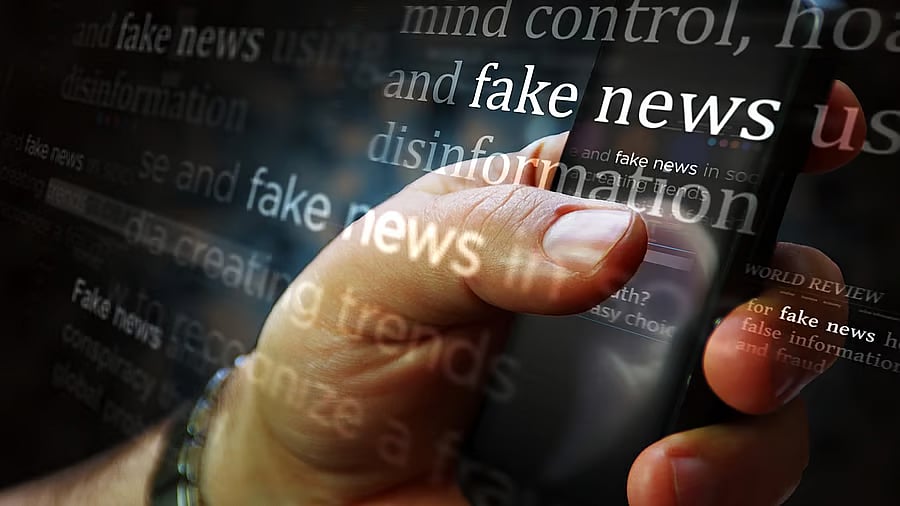
The IFF cautions the Karnataka government and the Cabinet to reconsider the draft, it said in a statement.
Credit: iStock Photo
Bengaluru: Digital rights advocacy group Internet Freedom Foundation (IFF) has cautioned the Karnataka government about the dangers in the proposed law against fake news and misinformation, which it said could lead to "partisan or selective enforcement".
Social media users found guilty of posting fake news will face up to seven years imprisonment and a maximum fine of Rs 10 lakh, according to the draft Karnataka Misinformation and Fake News (Prohibition) Act.
The government plans to set up a six-member Fake News on Social Media Regulatory Authority and special courts to try offences, which will be cognisable and non-bailable. Not obeying the special court's directions would attract up to two years imprisonment and a daily fine of Rs 25,000.
"The IFF cautions the Karnataka government and the Cabinet to reconsider the draft," it said in a statement, noting that the draft is not up for public consultation. It also noted that a "government-dominated authority" would decide what fake news is.
"Criminal speech offences drafted in broad terms invite partisan or selective enforcement. We has seen this play out before: the Supreme Court struck down Section 66A of the IT Act in Shreya Singhal v. Union of India for chilling lawful expression through vague language," the IFF said.
"More recently, Kunal Kamra and several media bodies successfully challenged the Union Government’s 'fact-checking unit' under the 2023 IT Rules on the same grounds — that the state should not be arbiter of truth with the power to penalise dissent," the IFF pointed out. "The Bombay High Court’s judgement signalled the constitutional incongruity of empowering an executive-led body to define and punish 'misinformation'," it said.
The IFF has asked the Karnataka government to drop criminal provisions and "pursue narrowly-tailored, rights-respecting civil or administrative measures focused on transparency, corrections, and platform due-process." This, the IFF said, "should ordinarily be through mass literacy efforts rather than invoking civil or criminal that lead to censorship."
The IFF also demanded a public consultation on the full draft Bill before it is introduced in the legislature.
"A democratic approach to misinformation must strengthen, not shrink, the space for free inquiry and dissent. We stand ready to engage constructively with lawmakers to craft safeguards that protect both truth and fundamental rights," the IFF said.
